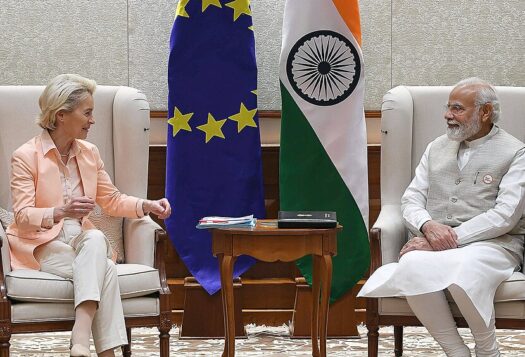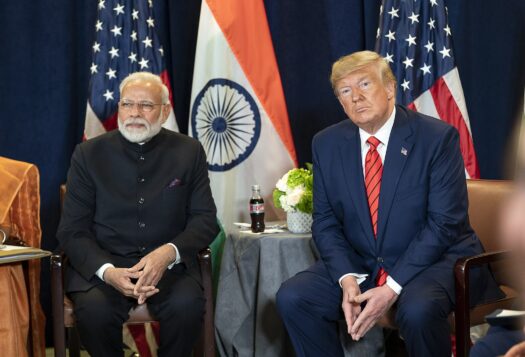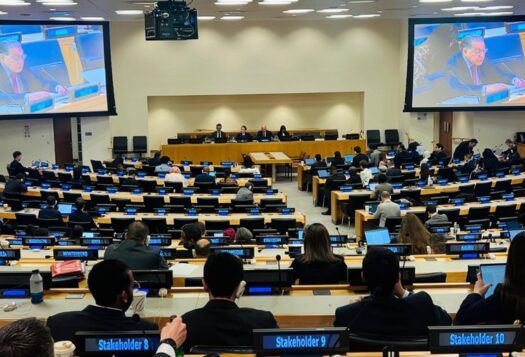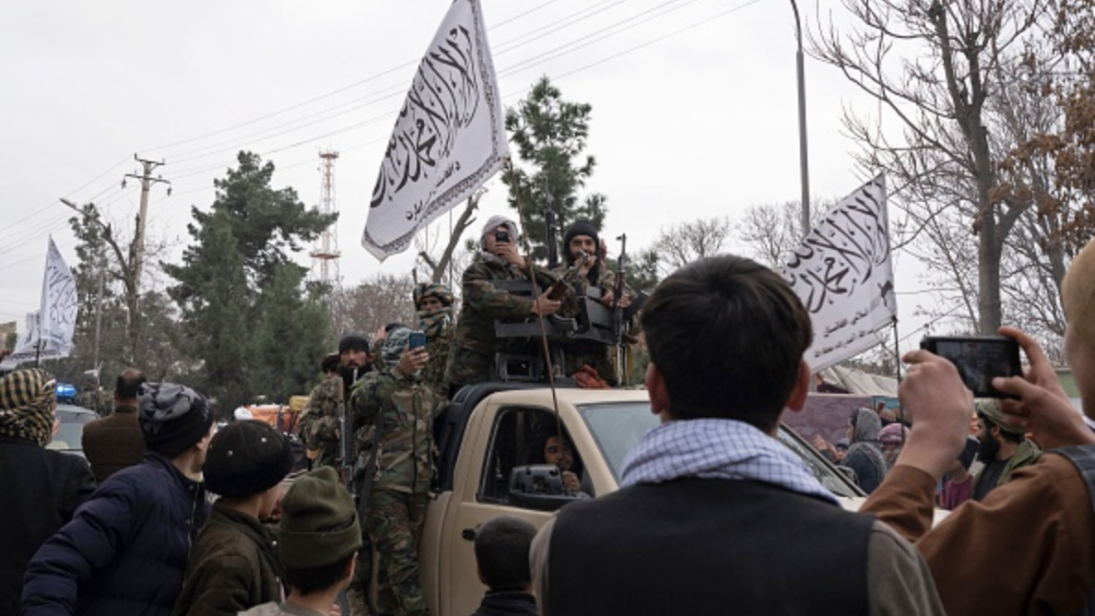
If there is one picture that describes the failure of Washington’s War on Terror policy in Afghanistan, it is the viral image of Taliban Defense Minister Mullah Yaqoob in a military parade during the 21st anniversary of the 9/11 attacks. The text on the U.S. military truck’s license plate inside the American-invested Bagram airfield says enough: the Taliban doesn’t “care” about the world. By harboring Al-Qaeda’s leader and allowing the IS-K to attack Afghanistan’s Central Asian neighbors, the Taliban has proven the license plate’s message correct by dismissing the security commitments outlined in the Doha Agreement.
While the Taliban has already reversed significant achievements of two decades of U.S. investment, both major political parties in Washington have moved on from politicized accusations for the failed withdrawal and concluded another failed foreign policy chapter in Central Asia. The United States’ disengagement in the region has historically led to unfortunate consequences for both countries. Is Washington heading down the same miscalculated path as it did in the 1990s: a destabilized Afghanistan with renewed chances of civil war and an international safe haven for terrorism? Or are there other alternatives to prevent repeated mistakes? After losing Afghanistan, the United States has virtually no leverage against the Taliban. Given the lack of policy alternatives it can take, the Taliban can either continue its failed security-centric policy of the last four decades or learn from the past and engage with a wider group of non-violent actors in the region instead.
Corruption and failed security-centric policy in Afghanistan
The United States’ policy failures in Afghanistan began in 1979 when it lost its diplomatic presence in the country to the Communist bloc. The 1990s brought the second U.S. failure after it chose a disengagement policy that led to the Afghan civil war and the rise of the Taliban. The third wave of miscalculation continued over the last two decades, during which Washington focused on the prosperity of corrupt Afghan elites while losing the support of ordinary Afghans. Now, Washington risks repeating the same mistakes of the 1990s by ignoring the Taliban, closing its eyes to international terrorism, and choosing a disengagement policy.
Given the lack of policy alternatives it can take, the Taliban can either continue its failed security-centric policy of the last four decades or learn from the past and engage with a wider group of non-violent actors in the region instead.
One of the primary reasons that the United States lost its war was because it never viewed Afghanistan as an equal-opportunity partner. Contrary to other great powers who considered Afghanistan a strategic bridge between Central and South Asia, American foreign policymakers have primarily regarded Afghanistan as a threat to U.S. national security.
This perspective has resulted in Washington developing a security-centric foreign policy toward Afghanistan, which prioritized funding for guns and stingers over diplomacy, development, and the interests of the Afghan people. During the Afghan-Soviet War, the United States supported a small group of Afghan mujahedeen by financing Pakistan. Similarly, in the last two decades, funding for development only reached the pockets of U.S. military contractors and a small group of Afghan elites who lacked accountability to the Afghan population and international partners.
The collapse of Ghani’s so-called ‘Republic’ didn’t happen overnight: American diplomats and senior U.S. military officials in Kabul turned a blind eye to—and even encouraged—the mismanagement of international development funds by Afghan elites for two decades. Most American think tanks and policy circles also legitimized these corrupt Afghan elites, providing them with platforms to air falsehoods about the status of democracy and military gains, while in reality, the corrupt government was losing the hearts and minds of ordinary Afghans, with the Taliban gaining influence day by day. American policymakers knew better than anyone that all three Afghan presidential elections were based on fraudulent votes but were still recognized as democratic elections. The imperative to keep the United States “safe” from Afghanistan has always taken precedence over building a stable democracy in the country.
Electoral influence instead of a cohesive long-term strategy
In addition to a security-oriented doctrine, U.S. foreign policy in Afghanistan after 2001 had another problem: the excessive influence of U.S. domestic polarization. Contrary to the Afghan-Soviet war, where Washington and mujahedeen leaders had a common goal of defeating the Soviets, in the post-2001 era, successive political administrations used the supposed foreign policy success in Afghanistan as a means to fulfill campaign promises and win elections. As a result, the American public has been misinformed about the ground reality in Afghanistan for almost two decades.
For instance, former President Donald Trump continuously highlighted the costs of American engagement in Afghanistan and used American voters’ pessimism about the war to gain support for the one-sided Doha agreement with the Taliban, sidelining the U.S.-backed Kabul government. The Biden administration followed through with Trump’s Doha Agreement, ignoring the advice of the military, intelligence apparatus, and diplomatic circle, which warned of the fall of the Afghan government within 18 months. President Biden’s decision to hastily leave Afghanistan affected the lives of millions of Afghans and damaged the U.S.’s international reputation, especially among its adversaries like China and Russia.
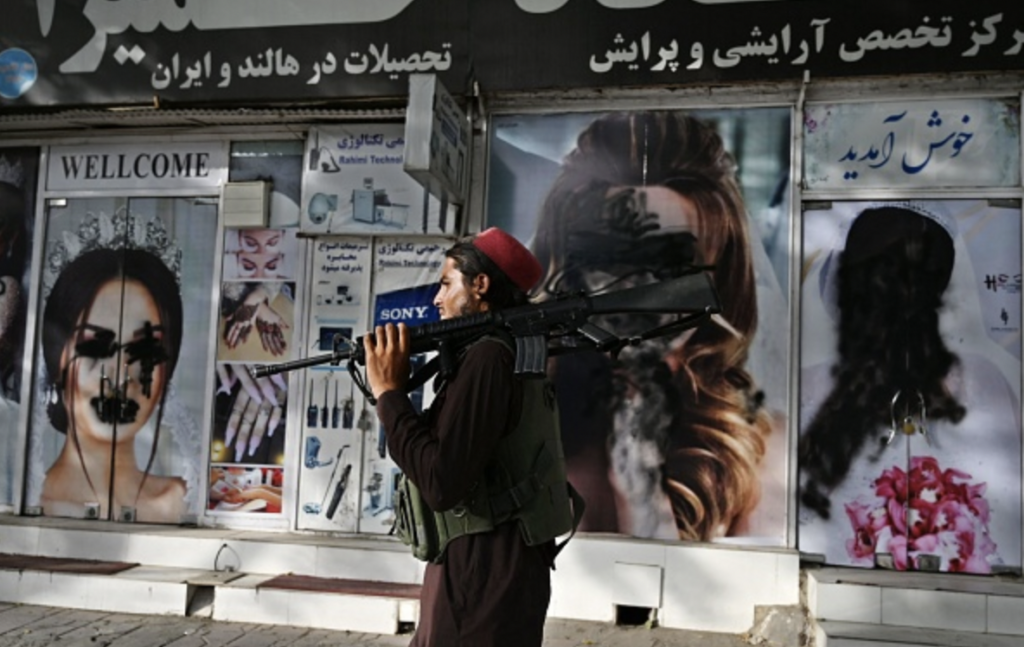
While both Democrats and Republicans contributed to the fall of a semi-democratic Afghanistan, each party, with an eye on the midterm election, has accused the other of being responsible for the fall of Afghanistan. The reality is that both the Trump and Biden administrations contributed to the current chaos, where Afghan women have lost their equal rights, girls have been banned from secondary education, the Afghan economy has collapsed, vast numbers have been forcibly displaced, and a majority of Afghans have become hostage to their own government.
Biden’s Afghanistan Policy with the Taliban 2.0
The notion of a changed Taliban, or a “Taliban 2.0”, has largely been promoted by actors that pushed for the Doha Agreement. This has created an illusion that there is a new generation of the Taliban that is neither corrupt nor elitist, and can restore peace in the country. With this illusion, the Biden administration has attempted to engage with the Taliban over the past 12 months. However, despite promises from the so-called moderate Taliban leadership, Biden’s negotiating team has not achieved tangible results for girls’ education, women’s economic and political participation, minority inclusivity, and media freedom. The U.S.’s current policy towards Afghanistan is based on staying engaged with their former adversary under false pretenses while simultaneously not extending international recognition to the so-called Islamic Emirate, partially out of fear of a domestic midterm election backfire.
Nonetheless, the Biden administration secured a major victory for its post-war counterterrorism strategy with the recent killing of Al-Qaeda leader Ayman Al-Zawahiri. However, it is impossible to use the same amount of effort and resources to target each individual Al-Qaeda or ISIS member across Afghanistan. The tragic failure of August 29th, 2021, in which a U.S. drone strike killed ten Afghan civilians, including seven children, proved that counterterrorism operations without sufficient human intelligence on the ground could be inaccurate and deadly. In addition, Al-Zawahiri was found in Kabul, and had been residing in the house of Taliban interior minister Sirajuddin Haqqani for at least six months. If the Haqqani family hadn’t cooperated with U.S. intelligence agencies, then the discovery of al-Zawahiri in a Taliban household raises serious questions about whether the Biden administration can trust the Taliban to cooperate on their counterterrorism commitments.
The Way Forward for Washington
Since the collapse of the U.S-backed Afghan government last August, the Biden administration has been left with virtually no leverage to deal with the Taliban, the de-facto government for the foreseeable future. The United States is tired of protracted wars and has prioritized electoral gains over crafting a better foreign policy toward Afghanistan.
With a lack of feasible alternatives, the United States can support non-violent actors, such as civil society groups, women’s rights organizations, religious and minority groups, and the Afghan diaspora, as effective counter-Taliban measures. A good example of this effort is the recently launched U.S.-Afghan Consultative Mechanism, which enables U.S. officials to engage more effectively with Afghan women and civil society groups. However, Washington policymakers need to start listening to the new generation of voices building inside Afghanistan instead of the former Afghan elites and failed donor receivers, who were responsible for this situation in the first place.
While the United States’ war with the Taliban has ended, the fight for ordinary Afghans continues, including for the many who helped the American war effort and are particularly at risk under the Taliban.
While the United States’ war with the Taliban has ended, the fight for ordinary Afghans continues, including for the many who helped the American war effort and are particularly at risk under the Taliban. The United States has a moral responsibility to bring those allies, including Special Immigrant Visa applicants, to safety. The United States must refrain from extending formal recognition to the Taliban so long as they engage with terrorist networks, ban women’s education, and obstruct inclusive political participation.
History has proven that disengagement and short-term strategic deals with autocratic regimes under the motto of “security” have always led to future failures. The current course of the Taliban, with its fundamentalist views and relationships with international terror networks, is a ticking bomb; the question is when it will explode again.
***
Image 1: Elise Blanchard/AFP via Getty Images
Image 2: Wakil Khosar/AFP via Getty Images
